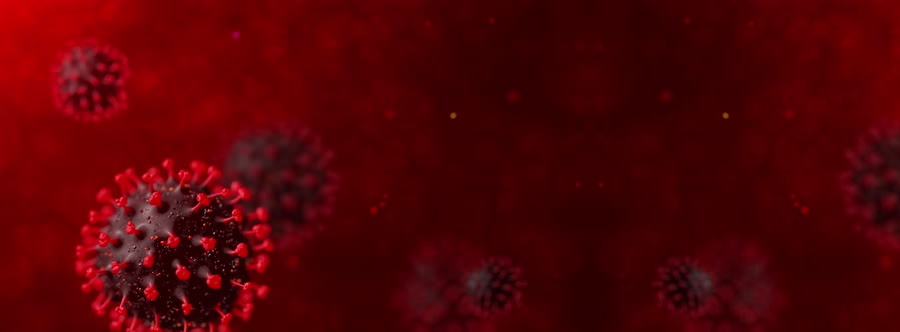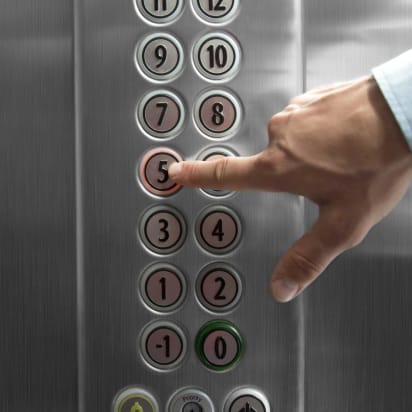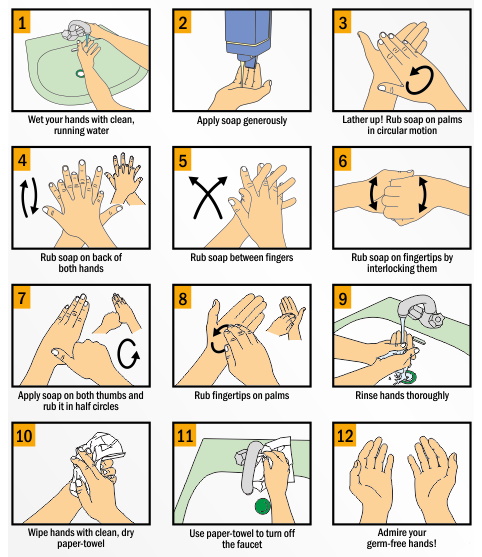
Coronavirus is having a significant impact of our personal and professional lives. We are in uncharted territory and as we progressively learn more about this new viral threat, it is becoming clearer every day that it is not to be taken lightly.
HOW IS COVID-19 TRANSMITTED?
One thing we know for certain is that much like any virus, COVID-19 is being transmitted through direct contact with infected persons or contaminated objects:
-
- By inhaling respiratory droplets expelled into the air by an infected person who is coughing or sneezing in your close proximity, of less than 1.5 m.
A single cough can produce up to 3 000 droplets. These particles will land on nearby people and objects, but smaller droplets will remain airborne for up to 3h.
-
- By touching virus-contaminated surfaces and then transferring the germs from your hands into your body when touching your mouth, eyes or nose.
Did you know that studies have found that every one of us will touch our face at least 16 times in an hour?
Touching your face without washing your hands properly beforehand increases your chances of getting infected with the virus. Your mouth and nose are the areas where viruses can easily enter your body.
ENVIRONMENTAL HYGIENE IS KEY
Venturing outside your home can prove to be daunting in these difficult times. A simple trip to the supermarket or workplace, where we normally feel safe, may now make us feel uneasy. Every surface we touch may potentially be contaminated by the coronavirus increasing our chances to become infected. Adopting certain hygiene measures is therefore paramount to help reduce the spread of COVID-19 and protect ourselves and our loved ones from suffering the consequences. This is all the more important as we are heading into the colder months that will create more favourable conditions for the viruses to stay active on surfaces for longer time periods.

A recent scientific study conducted at the University of California in Los Angeles has found that the coronavirus remains infectious from several hours up to several days on different surfaces and aerosols, depending on the type of surface, temperature or humidity of the environment:
-
-
Up to 3h in the air (airborne droplets)
-
Up to 4 hours on copper surfaces
-
Up to 24 hours on cardboard and other porous surfaces like fabric and paper
-
Up to 2-3 days on plastic and stainless steel (e.g. food containers, light switches, mobile phone cases, elevator buttons, telephones, handrails, door handles etc.)
-
Up to 4 days on glass (drinking glass, windows, glass partitions, mirrors etc)
-
Incorporating only a few simple steps into our daily routine will however help to reduce the spread of the virus and make a vast difference on our well-being.
CLEANING OF FREQUENTLY TOUCHED SURFACES
-
- STEP 1: Clean properly all the visibly dirty surfaces to eliminate organic matter, dust and soil which can harbour germs and viruses.
Use a detergent solution prepared as per manufacturer’s instructions.
-
- STEP 2: After thorough cleaning, disinfect all the surfaces.
For this step, always prepare a fresh solution made of 0.1% or 1000ppm heavy-duty bleach; read the manufacturer’s instructions to determine the bleach to water ratio. Bleach should not be used on porous surfaces such as textiles, nor metals as they may get damaged.
MIX THE SOLUTION IN A BUCKET BY FOLLOWING THESE TWO STEPS: |
||
|
STEP 1: Read the label on the bleach bottle to determine the original strength of bleach: |
STEP 2: Dilute bleach in water in the following ratio, depending on the original strength of bleach: |
|
|
Parts per million (ppm) |
Parts of bleach |
Parts of Water |
|
10,000 |
1 |
9 |
|
20,000 |
1 |
19 |
|
30,000 |
1 |
29 |
|
40,000 |
1 |
39 |
|
50,000 |
1 |
49 |
Frequently touched surfaces include:
-
-
-
-
-
- Door handles
- Light switches
- Tabletops
- Telephones especially in common areas
- Kitchen cabinets and benchtops
- Fridge and microwave handles, coffee machine / coffee pot handles
- Sinks and taps in bathrooms and kitchen
- Lift buttons
- Office equipment: keyboards, mouse, computers
- Toys
- Handrails and bed handrails
-
-
-
-
CLEANING OF OTHER MINIMALLY TOUCHED SURFACES
- ROUTINE CLEANING with a detergent solution is sufficient for such surfaces to eliminate soil, dust and impurities. Such surfaces include floors, walls, blinds and ceilings.
HAND HYGIENE is also important in the fight against the COVID-19, as it will eliminate the virus before it’s transferred to other objects or people:

- Wash your hands frequently, especially when outside your home. You should always bear in mind that objects you are touching may potentially be contaminated with the virus.
- If your hands are visibly soiled, wash your hands with soap and water for 20 seconds before using alcohol-based hand sanitiser: rub all the hand areas including between all your fingers and under your nails. Hand sanitisers are most effective when the hands are not dirty.
- Do not touch your face – mouth, nose and eyes when outside your home before washing your hands properly.
- Keep social distancing; stay at least 1.5m away from other persons who are not members of your household. This is the length the respiratory droplets can travel when an infected person coughs or sneezes.
- Cover your cough and sneeze and wash your hands thoroughly or use alcohol-based hand sanitiser before touching objects.
-
-
- MAKE SURE THE HAND SANITISER YOU ARE USING CONTAINS AT LEAST 60% ALCOHOL.
-
Take care of yourselves and each other!
Cleanaux is doing everything we can to help provide a safe work environment in these challenging times. In our efforts to help prevent the spread of COVID-19, our trained cleaning staff are applying appropriate preventative and control measures on each scheduled clean by disinfecting all the frequently touched surfaces in all the areas with the use of hospital-grade disinfectants at required intervals and as per the protocols prescribed by the WHO.
Cleanaux is committed to providing 24/7 services at this time of crisis. Contact Cleanaux Cleaners now to prevent coronavirus outbreak at your workplace.
